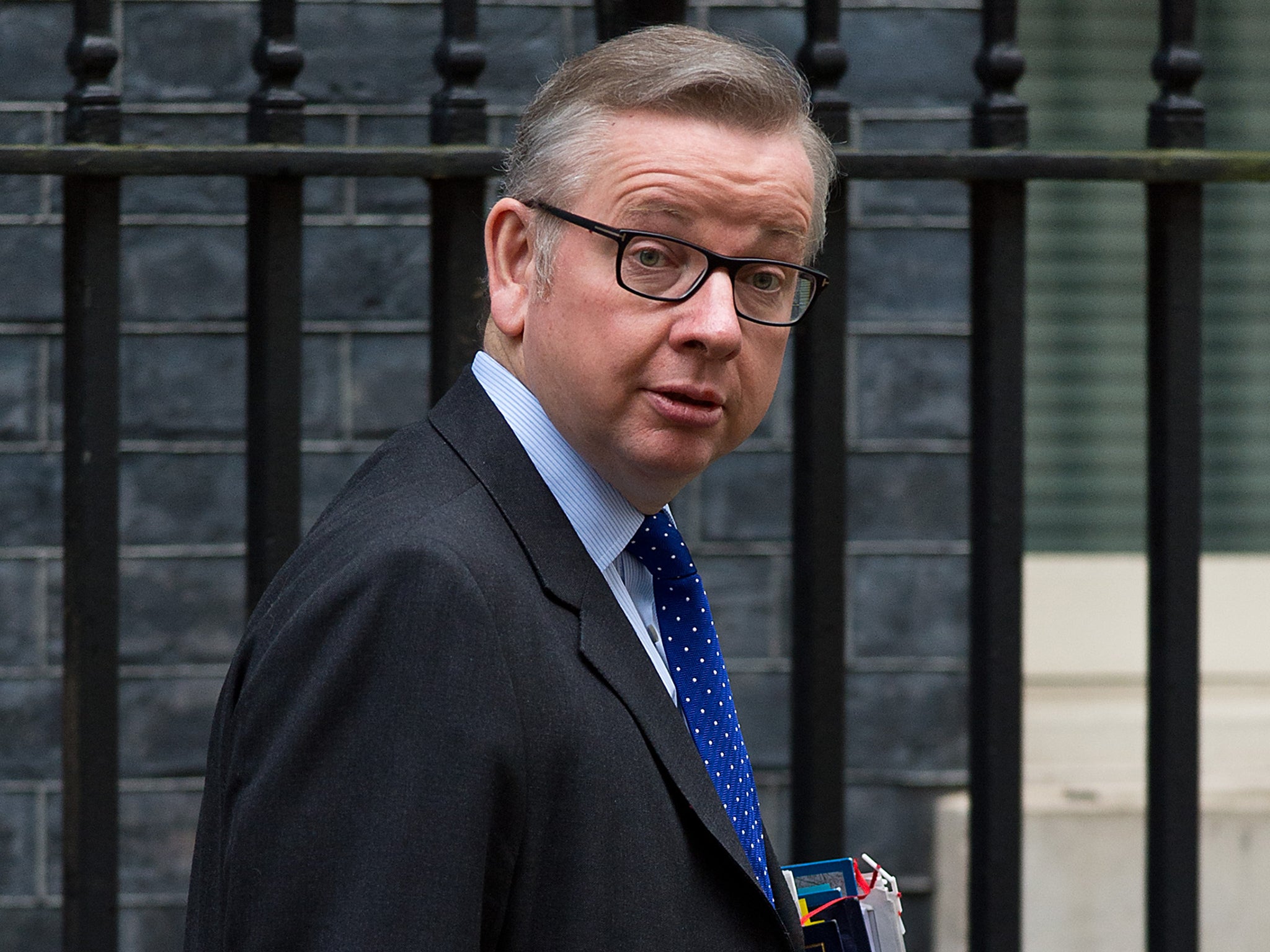Tax on justice: Michael Gove scraps criminal courts charges after Independent campaign
The Ministry of Justice has been inundated with complaints about the £150 flat fee court charge which is not means tested and could rise to £1,000 if someone pleaded not guilty but lost their case in court

A “tax on justice” that made defendants pay towards the cost of their trials is to be abolished by the Government after a three-month campaign spearheaded by The Independent.
In a significant climbdown, the Justice Secretary, Michael Gove, has ripped up the policy of his predecessor, Chris Grayling, and announced that the criminal courts charge will be scrapped across England and Wales by Christmas.
The fee had been condemned by magistrates, lawyers, civil rights groups and even the Conservative-dominated Commons Justice Select Committee.
The U-turn follows a campaign by The Independent that exposed how defendants were being encouraged to plead guilty to crimes they did not commit to avoid a fee that they could not afford to pay.
Under the rules, defendants who plead guilty to any offence currently have to pay a flat charge of £150 towards the cost of their prosecution, which is not means tested. This can rise to £1,000 if they plead not guilty but lose their case in court.
The Independent has also highlighted how many defendants had faced extra financial hardship as a result of crimes that were motivated by poverty in the first place.
Announcing the move, Mr Gove told a meeting of magistrates he accepted that the new charges had not worked and said his department would now look again at the whole question of court charges.
“It has become clear that while the intention behind the policy was honourable, in reality that intent has fallen short,” he said.
“Whenever I have had the opportunity to talk to magistrates over the last six months, the criminal courts charge has been raised and in almost every case it has been criticised.”
The charge will no longer be imposed from 24 December, and Mr Gove said he would consider the “whole range of penalties, fines and charges imposed in our courts”, intending to give the judiciary “greater discretion”.
Mr Gove added that he wanted to make financial penalties a “more effective tool” in improving non-custodial sentences, but said some of the money would have to go towards “supporting taxpayers to meet the costs of running the courts”.
How the campaign progressed
- 22 August: Innocent people are encouraged to plead guilty to avoid courts charge, The Independent reveals.
- 9 September: The Independent front page reveals more than 50 magistrates have quit in protest against the charge.
- 25 September: It emerges that magistrates are giving petty criminals absolute discharges to avoid imposing the charge.
- 14 October: More pressure to scrap the charge, as The Independent reveals the penalties are causing crime victims to miss out on compensation.
- 15 October: The Independent reveals that Michael Gove is preparing a climbdown.
- 27 October: Rape victim did not get compensation from her attacker because of the charge, according to evidence submitted to Justice Select Committee.
- 3 November: Conservative MPs join the protests, speaking out in the House of Commons.
- 16 November: Judicial Executive Board warns that defendants may feel pressured to plead guilty to avoid the charge.
- 3 December: Mr Gove announces that the courts charge will be scrapped later this month.
The move has been welcomed by the legal profession as well as criminal justice charities.
Chantal-Aimée Doerries QC, chairman-elect of the Bar Council, which represents barristers, said the charge had created a “perverse incentive to plead guilty, negated the principle of judicial discretion, reduced compensation awards and was never likely to raise the funds anticipated”.
She added: “The Ministry of Justice has clearly listened very carefully to members from both Houses and from across all political parties, as well as to the legal profession, and others who have campaigned on this issue.”
Jonathan Smithers, president of the Law Society, said: “We have consistently raised grave concerns about the threat posed to fair trials by the criminal courts charge. We are pleased that our concerns have been listened too.
Frances Crook, chief executive of the Howard League for Penal Reform, said she “applauded” Mr Gove for acting quickly to get rid of a charge that was simply unfair.
But she added: “There remains the problem of people who have had the criminal courts charge imposed on them, many of whom will simply not be able to pay. We call on magistrates to exercise compassion and common sense when these unfortunate people are returned to court.”
The Conservative chair of the Commons Justice Select Committee, Bob Neill, said the committee was pleased Mr Gove had listened to the “overwhelming evidence” about problems with the way the charge has been working.
“It is good that the Secretary of State is willing to respond so swiftly to take account of the inquiry we carried out,” he said. “We will watch with interest the review which Michael Gove has announced into the whole panoply of financial impositions on offenders.”
Keir Starmer, the Labour MP and a former Director of Public Prosecutions, added: “Had the Government consulted before introducing the criminal charge, it would never have done so. This small but welcome step removes an injustice which stained our criminal justice system.”
